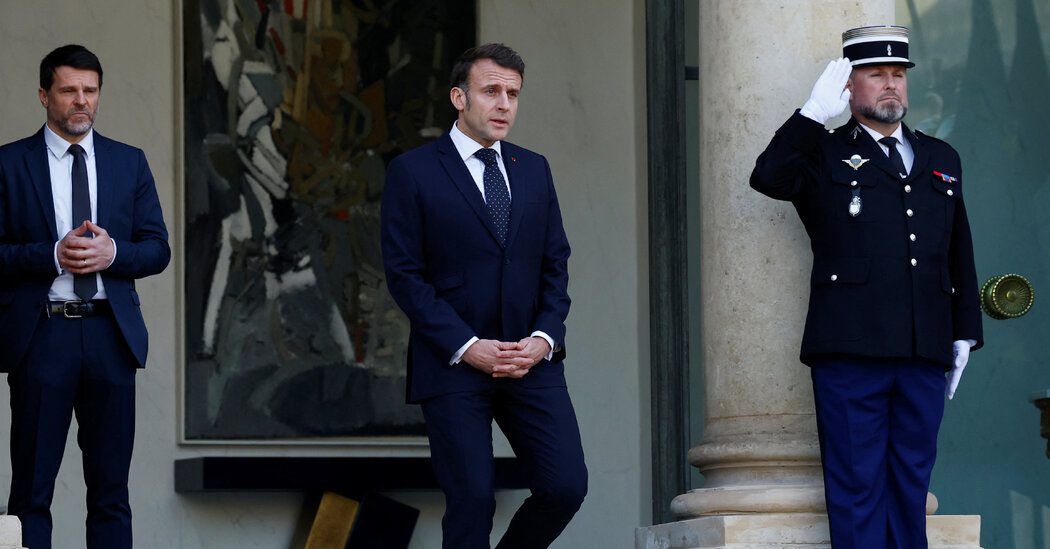

French President Emmanuel Macron convened a second emergency meeting with European allies on Wednesday, aiming to reassess the continent’s relationship with the United States. This move comes in response to President Trump’s rapid alterations in American foreign policy, which have left traditional alliances in disarray.
Earlier this week, Macron had gathered a dozen European leaders in Paris after Trump and his new administration stirred both anger and confusion among long-standing allies. They suggested a swift withdrawal of the U.S. from its security commitments in Europe and hinted at initiating peace discussions with Russia that would exclude Europe and Ukraine.
Trump’s statements on Tuesday, where he aligned himself with Russia’s narrative regarding the war and placed blame on Ukraine, have further solidified concerns that the United States might forsake its European commitments in favor of closer ties with Russian President Vladimir Putin. This dramatic shift in historical alliances has left many in Europe shocked and apprehensive.
Jean-Yves Le Drian, a former French foreign minister, expressed his dismay on French radio, stating, “What’s unfolding is extremely troubling. It marks a reversal of the global order established since 1945.” He emphasized the risks to European security posed by Trump’s actions, urging a collective awakening among allies.
In Eastern and Central Europe, there is heightened anxiety over Trump’s apparent readiness to abandon Ukraine and his acceptance of Russian rhetoric. These regions carry emotional scars from history, with memories of past appeasements, such as the 1938 Munich Agreement with Hitler and the 1945 Yalta Conference with Stalin, still vivid.
Polish lawmaker Jaroslaw Walesa, son of the famed Solidarity leader Lech Walesa, articulated the sentiments of his constituents on social media, stating, “Even Poland’s betrayal at Yalta endured longer than Ukraine’s perceived betrayal during the talks in Riyadh.”
The situation continues to develop as European leaders seek stability and clarity in a time of uncertainty over U.S. foreign policy direction.








